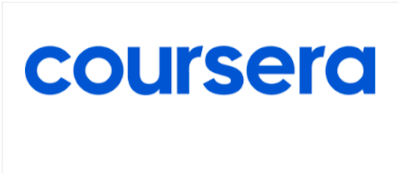TOP 10 ONLINE DEGREE PROVIDER SITES

1. 60second Recap

60second Recap is an educational videotape design launched in September 2009 to give 60-alternate videotape summaries and analysis of classic literature. The point provides one- nanosecond videotape narrative on plot, themes, characters, symbols, motifs, and other aspects of books generally studied in secondary seminaries in North America.
A time after its launch, 60second Recap's website offered over 400 videos covering 35 classic erudite workshop and 60 contemporary titles. It had also entered further than 4.5 million website visits. During its alternate time, 60second Recap continued to add to its content library, with new 60second Recap videotape" compendiums"of 10-15 individual vids covering colourful aspects of a work similar as Beowulf or Hamlet. The website presently presents roughly 800 vids encompassing 42 classic erudite workshop, and over 250 reviews of contemporary books of implicit interest to teenagers.
Classroom acceptance
- 60second Recap won acceptance in seminaries, still, and preceptors said they plant it effective in sparking classroom conversations. 60second Recap was also cited by special education preceptors as a pedagogical tool for scholars who have literacy disabilities that intrude with their capability to comprehend written material.
2. Academic Earth

Academic Earth is a website launched on March 24, 2009, by Richard Ludlow and co-founders Chris Bruner and Liam Pisano, which offers free online videotape courses and academic lectures from the world's top universities similar as UC Berkeley, UCLA, University of Michigan, University of Oxford, Harvard, MIT, Princeton, Stanford, and Yale. It's considered a hunt machine for full- textbook scholarly information, with videotape courses covering around 50 primary subject disciplines ranging from Trades and Design, Astronomy, Biology, Chemistry, Computer Science, Economics, Engineering, English, Entrepreneurship, History, Humanities, Law, Mathematics, Medicine, Philosophy, Physics, Political Science, Psychology, Religion, and Statistics.
3. Coursera

Coursera Inc. (/ kərˈsɛrə/) is aU.S.- grounded massive open online course provider innovated in 2012 by Stanford University computer wisdom professors Andrew Ng and Daphne Koller. Coursera works with universities and other associations to offer online courses, instruments, and degrees in a variety of subjects. In 2021 it was estimated that about 150 universities offered further than courses through Coursera.
Finances
- Coursera's earnings rose from$ 184 million in 2019 to$ 294 million in 2020. To date, Coursera has not made a profit. The company lost$ 66 million in 2020 as they ramped up marketing and advertising.
- For the first quarter in 2021, Coursera reported profit of$88.4 million, up 64 from a time before, with a net loss of$18.7 million, or$13.4 million on anon-GAAP base. Coursera said consumer profit was$51.9 million, up 61, while enterprise profit was$24.5 million, up 63, and degree programs had profit of$ 12 million, up 81.
- For the third quarter in 2021, Coursera reported profit of$109.9 million, over 33 from$82.7 million a time ago. Gross profit was$67.7 million or61.6 of profit. Net loss was$ (32.5) million or (29.5) of profit.
Funding
- The incipiency raised an original$ 16 million backing round backed by Kleiner Perkins Caufield & Byers and New Enterprise Associates. In 2013, GSV led the Series B investment, which totaled$ 63 million. In 2015, NEA led the Series C round of adventure backing, which totaled further than$ 60 million. In 2017, the company raised$ 64 million from its being investors in Series D round of backing. In 2019, the company raised$ 103 million in Series E round of backing from the SEEK Group, Future Fund and NEA. The company reached valuation of$ 1 billion in 2019. In July 2020, the company blazoned it had raised$ 130 million in Series F backing and streamlining its valuation to$2.5 billion.
Business model
- In September 2013, it blazoned it had earned$ 1 million in profit through the trade of vindicated instruments that authenticate successful course completion. Coursera first rolled out a series of figure- grounded course options, which included vindicated credentials for completion, in 2013. As of October 2015, the company had raised a aggregate of$146.1 million in adventure capital.
4. Crash Course (YouTube)

Crash Course ( occasionally stylized as Crash Course) is an educational YouTube channel started by John and Hank Green ( inclusively the Green sisters), who first achieved personality on the YouTube platform through their Vlogbrothers channel.
Crash Course was one of the hundred original channels funded by YouTube's$ 100 million original channel action. The channel launched a exercise on December 2, 2011, and as of January 2021, it has accumulated over 12 million subscribers and 1.5 billion videotape views. The channel launched with John and Hank presenting their separate World History and Biology series; the early history of the channel continued the trend of John and Hank presenting humanities and wisdom courses, independently. In November 2014, Hank blazoned a cooperation with PBS Digital Studios, which would allow the channel to produce further courses. As a result, multiple fresh hosts joined the show to increase the number of concurrent series.
To date, there are 44 main series of Crash Course, of which John has hosted nine and Hank has hosted seven. Together with Emily Graslie, they also co-hosted Big History. A alternate channel, Crash Course Kiddies, is hosted by Sabrina Cruz and has completed its first series, Science. The first foreign- language course, an Arabic revamping of the original World History series, is hosted by Yasser Abumuailek. The main channel has also begun a series of shorter amped occurrences, called Recess, that focus on motifs from the former Crash Course series. A collaboration with Arizona State University named Study Hall began in 2020, which includes lower structured literacy in its motifs.
5. Do Lectures

The DO Lectures is an periodic event that was innovated in 2008 on the west seacoast of Wales by Clare and David Hieatt
Those attending go online. There are now there are over 200 addresses available online. Speakers include Sir Tim Berners Lee, Marion Deuchars, Maggie Doyne, and David Allen.
The Giving President prize
The Giving President is a patronized spot at The DO Lectures so that scholars can attend for free. An aspirant submits a 90 alternate videotape about themselves and also another after the event to pass on everything they learned to the company that ante the bill for their president.
6. edX

edX is an American massive open online course (MOOC) provider created by Harvard and MIT. It hosts online university- position courses in a wide range of disciplines to a worldwide pupil body, including some courses at no charge. It also conducts exploration into literacy grounded on how people use its platform. edX runs on the free Open edX open- source software platform. 2U is the parent company, with edX operating as its global online literacy platform and primary brand for products and services.
Open edX Platform
- Open edX platform is the open- source platform software developed by edX and made freely available to other institutions of advanced literacy that want to make analogous immolations. On June 1, 2013, edX open sourced its entire platform. The source law can be plant on GitHub. The platform was firstly developed by Piotr Mitros, as a exploration design at MIT, with conservation transferred to edX in 2012.
- The Open edX garçon- side software is nearly entirely grounded on"Python, with Django as the web operation frame."
